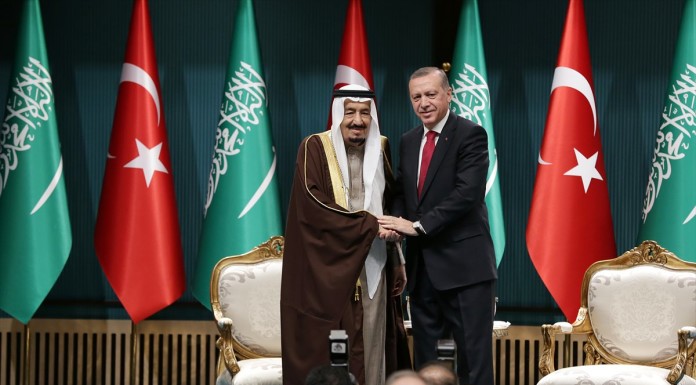Each electoral cycle, thousands of people in Iraq, including those with little chance of winning, announce their candidacy to run in the elections. 9043 candidates competed for 328 seats in the previous parliamentary election of 2014, which represents about...
Those who follow closely Saudi and Turkish media these days will witness an intense “undeclared” war of words between the two countries, triggered initially by the change in Turkey's policy of hostility towards Russia in the aftermath of the...
The electoral system of provincial councils is based on proportional system, which enables many parties to win seats in proportion to their vote share, leading to politically unstable councils. Furthermore, each province is one electoral district, which weakens the...
The Middle East region has faced monumental challenges in recent times. It all started with the political upheavals in Iraq in 2003, affecting as it did the various economic, political and security spheres, and which some observers believe gradually...
Hussein Darwish al-Adly, a Researcher and Academic.
“Iraq is the epicentre of three nations (the Arab, Iranian and Turkish). Its cohesion implies the unity of the three Middle East nations, while its disintegration certainly means the redrawing of the entire...
By Ahmad Alja’fari, Researcher and Academic, Educational Administration and Policy - University of Buffalo - America
When analysing the vocational paths of higher education in South Korea, America, Germany, Singapore, Japan, Britain, and Australia, it soon becomes clear that these...
The Iraqi government has begun to privatize the electricity sector amid much skepticism. The issue of privatization has quickly become controversial one among political factions, especially after the vocal opposition of five southern provinces, namely Dhi Qar, Muthanna, Wasit,...
Iraq marked an important milestone last week after it wrapped up its first independent bond sale worth US$1 billion. Iraqi government officials and advisors completed a weeklong roadshow that included stops in London, Boston and New York. Citi, Deutsche...
The war on corruption has been fought on many fronts, internationally and domestically, with differing degrees of success. The existing commentary on corruption in Iraq is extensive but some studies have focused on post-2003 Iraq without accounting for the...
Working in parallel with the effort to support Iraq’s armed forces to defeat Daesh, the international community recognises that it also has an important role to play in Iraq’s economic reform agenda. Only a rejuvenated and robust economy can...



















